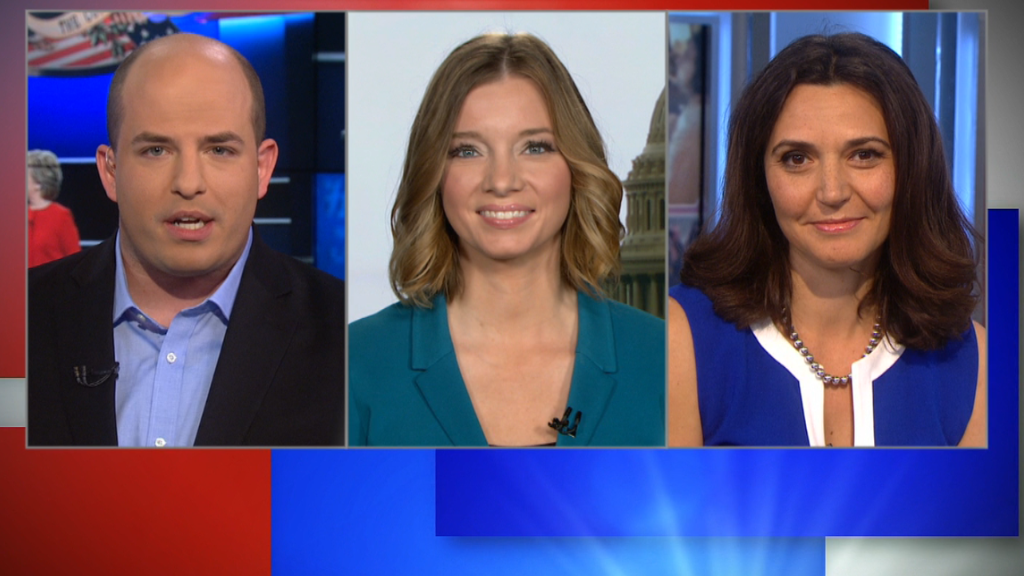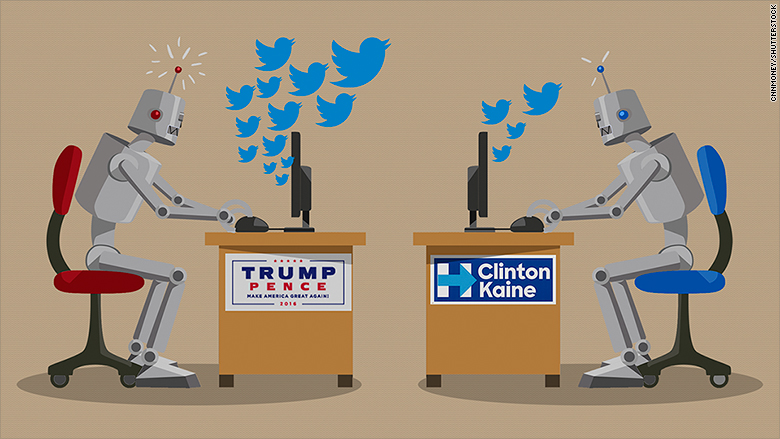
Donald Trump is more popular than Hillary Clinton on Twitter -- with both humans and machines.
University researchers who track political activity on Twitter have found that traffic on pro-Trump hashtags was twice as high as pro-Clinton hashtags during the first presidential debate.
But the team of academics, led by Oxford University professor Philip Howard, also found that 33% of pro-Trump traffic was driven by bots and highly automated accounts, compared to 22% for Clinton.
Bots are automated social media accounts that interact with other users. Some are able to answer basic questions and serve a customer service function, but they can also be used to spam and harass people.
Howard and his team based their conclusions, which have not been peer reviewed, on 9 million tweets posted around the time of the September 26 debate.
They tracked activity on popular pro-Trump hashtags including #AmericaFirst, #ImWithYou, #MakeAmericaGreatAgain, and #NeverHillary, as well as pro-Clinton hashtags #ImWithHer, #NeverTrump, #WhyIWantHillary and #HillarysArmy.
Twitter accounts that display suspicious activity, such as posting more than 50 messages a day, are likely to be bots, according to the researchers.
"We don't know who generates the bots -- if it's the campaigns, supporters, the candidates," Howard told CNNMoney.
Related: Obama has his own Facebook Messenger bot

The research showed that Trump would be "winning" on Twitter (TWTR) even without the automated messages. "If you removed all the bots, it would seem that Trump is still more popular and has more traffic," Howard said.
Howard is part of a team studying computational propaganda at Oxford that has examined the role of political bots in elections in Mexico and Venezuela, as well as the Brexit vote in the U.K.
"The takeaway is that we should be skeptical about social media," he said. "Politicians use bots to influence debate, it's often a form of negative campaign, because in many cases these bots can be very vicious."
Who's donating to Trump? This bot will tell you.
Messages and tweets from well designed bots are increasingly indistinguishable from those sent by real people, and they are becoming a popular way for companies to communicate with customers.
In April, Facebook (FB) launched Bots for Messenger, a service that allows users to access everything from weather updates to shopping notifications through its messaging app.

